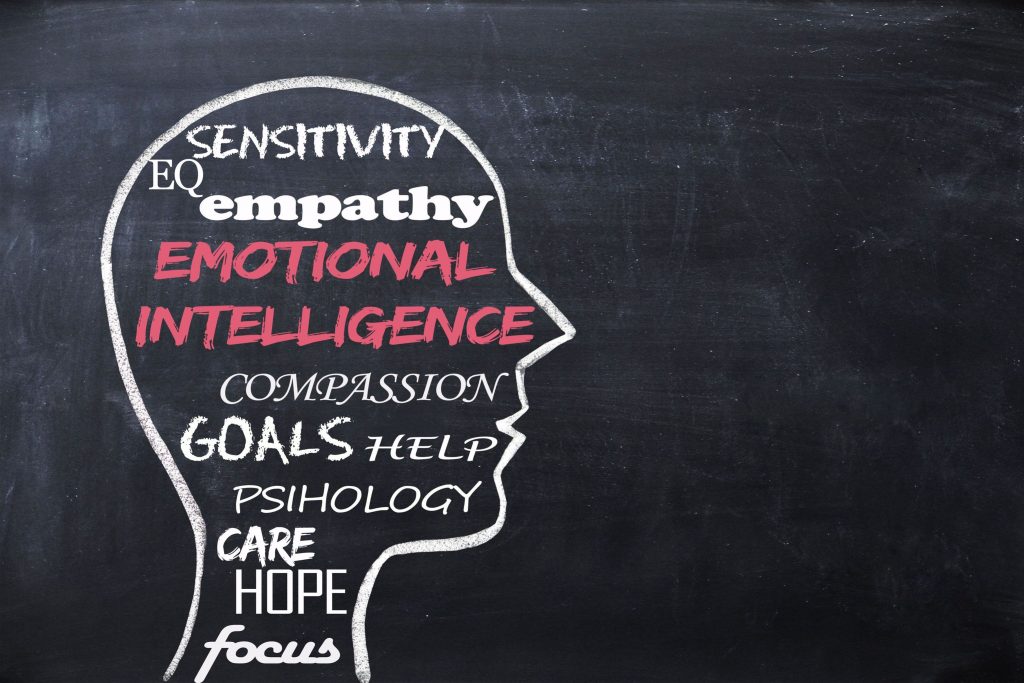How To Strengthen Your Emotional Intelligence as a leader

What is emotional intelligence? Why is it important as a leader to have EI? Why do leaders need to be emotionally sound and stable? Emotional intelligence or Emotional Quotient (EQ) is a significant attribute for leaders when it comes to recognising the leadership potential in others. Let’s dig deep to understand why emotional intelligence is such an important skill and how you can strengthen your emotional intelligence as a leader.
Emotional intelligence is a skill. The ability to employ, manage, and understand emotions to better communicate is essential. This includes being aware of your surroundings, overcoming challenges, handling adversity, withstanding difficult times, alleviating conflicts, taking action, and staying positive no matter what. A leader with strong emotional intelligence does not only understand his/her own feelings but knows how to empathise with others and support them in times of need.
The skilled use of emotional intelligence is probably a hugely important tool that cannot be denied when it comes to leadership. Emotionally intelligent leaders prove to be more productive in the long term. This is because great leaders have command over their emotions and they know when they need to control and manage them, and when they might need to show their emotions. Not only that, great leaders help others to manage emotions such as stress, anger, frustration, and fear.
Let’s look into some of the significant ways that make a leader emotionally intelligent, and able to make informed decisions. Developing Emotional Intelligence is vital to be a more productive leader and strengthen decision making.
If you want to strengthen your emotional intelligence, you need to focus on:
Being Self-Assertive & Confident
Self-confidence is key to a leader’s emotional intelligence. There are times when some team members can become aggressive, while others that find it difficult to speak up. Good leadership develops strong communication skills within a team and showing a leadership style that is confident and emotionally balanced, rather than too passive or aggressive. With optimistic thinking & assertive communication, leaders can support a healthy culture and a successful team. An emotionally strong leader knows how to communicate their opinions while respecting other opinions on the team.
Respond & not React
Conflict can lead to emotional outbursts. How one responds to these outbursts is key to managing teams well. There will always be people who are not aligned with your thoughts, or others in your team, and who will get frustrated with opposing opinions. A leader who is emotionally strong knows how to respond calmly in such stressful instances, and not make impulsive decisions which can aggravate the situation more.
A good leader with strong emotional intelligence focuses on RESOLUTION in times of conflict and makes a conscious choice.
Utilise Listening Skills
Listening abilities are vital for interpersonal communication. When working with a large team, a leader should not only focus on sharing their own ideas but also listen well to what is being communicated back. Good leaders understand that the best decisions are made with input from his or her team. Having the right emotional intelligence to bring differing opinions together in a positive way, empowers the leader to feel confident that they will make the right decision. They demonstrate empathy with others and make sure that there is no misunderstanding while they are communicating with other people.
Practice Self-Awareness
Self-awareness is essential for a successful leader. Individuals who are aware of their emotions and know how to respond in challenging environments, have strong Emotional Intelligence (EI)or Emotional Quotient EQ). How is one able to understand others, if one does not understand oneself.
Take Criticism Well
A significant part of strengthening your emotional intelligence as a leader is to be able to take criticism constructively. A good leader is never afraid of feedback. They focus on listening and understanding where the criticism is coming from and why. Instead of getting offended, or being worried about affecting their own productivity, the emotionally sound leader will focus on resolving an important issue to improve their leadership or resolve a misunderstanding.
Be Approachable
To increase Emotional intelligence, leaders must focus on their social and interpersonal skills and be in control of how they communicate verbally and non-verbally with their teams. A leader has to be psychologically resilient to keep up with the ongoing issues that arise in managing a team.
To read more blogs like these, visit https://www.carriebenedet.com/blog/. Carrie Benedet is a Leadership Coach working to improve your interpersonal and communication skills as a leader and she conducts various workshops including how to strengthen a Leader’s Emotional Intelligence. If you are seeking to enhance your skills, fill out the form here!





Responses